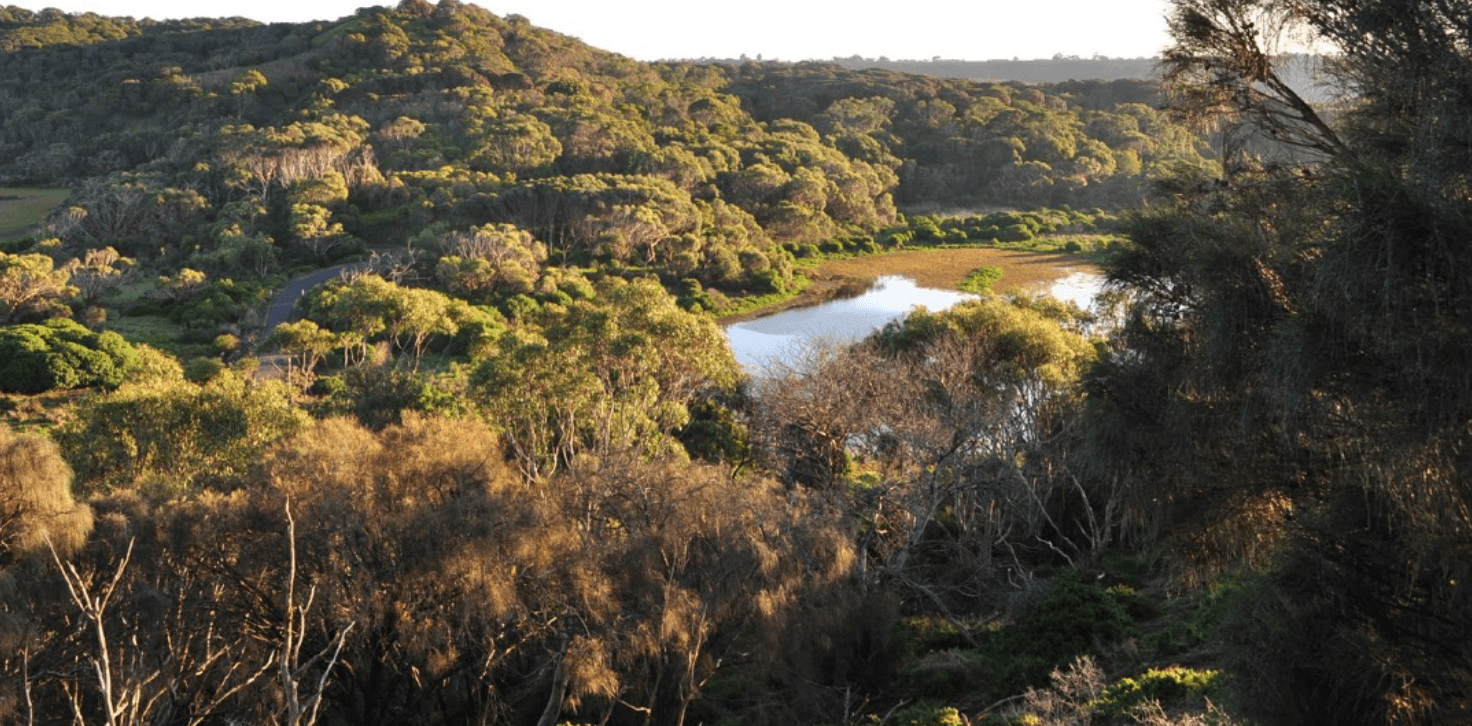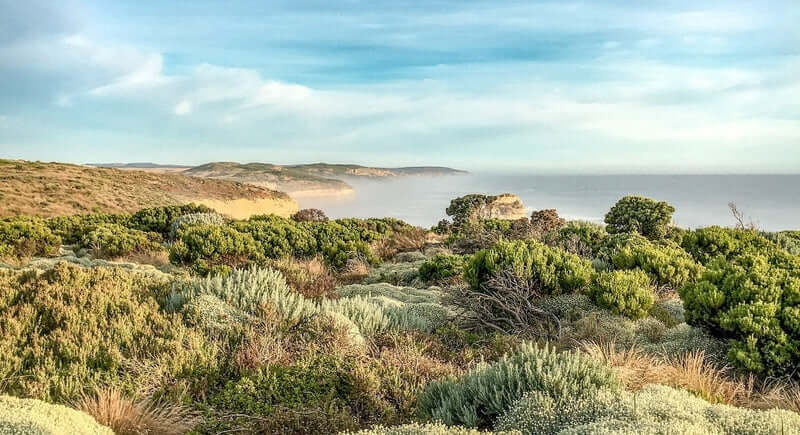Every year, wildfires threaten lives, damage homes and livelihoods in Australia. Following recent wildfires, communities in Australia are left facing a long, often complicated and exhausting road ahead as they work to rebuild their lives—ultimately having to embrace a future that is different from what they had imagined.

Recurring disasters across Australia
Every year, wildfires threaten lives, damage homes and livelihoods. Following wildfires, communities in Australia are left facing a long, often complicated and exhausting road ahead as they work to rebuild their lives—ultimately having to embrace a future that is different from what they had imagined.
Australian Red Cross has been at the forefront of the wildfire response for nearly four decades, working alongside emergency responders and recovery workers to both respond to and help communities recover from the impact of these disasters.

In the 2019-20 wildfire season alone, a series of fires severely damaged over 18 million hectares of land in Australia, affecting thousands of people and communities. With disasters increasing in severity and frequency, this is a huge task for any agency or organization supporting communities in the wake of these events.

In addition to supporting people at evacuation and relief centres during wildfires, recovery officers and trained volunteers across Australia continue to work with individuals and communities to cope with the aftermath of these events and access the necessary support required to help each other and strengthen connections within the community.
New tools needed to support recovery
With the unprecedented Black Summer fire season, floods, drought, and COVID-19 pandemic, Australian Red Cross needed innovative ways to support disaster-affected communities and to ‘support the supporters.’ With this in mind, they joined forces with Hummingly to address the stress, uncertainty, pain and disruption caused by these layered disasters.

Hummingly’s Cards for Calamity distil decades of recovery knowledge and cognitive science into an easy-to-use tool to support life-changing decisions in the days, weeks, months and years after a disaster.
“People around the globe often have a shared experience of disasters and recovery. Being able to read a card written by someone who is 12 months, or two years ahead of me helps me know that what I’m feeling right now is quite normal—it fast-tracks the process because you don’t need to re-learn what other people have already learned.”
Jessica, Australian Red Cross Recovery Officer
The 70 cards include practical strategies for navigating life after a disaster. They have enormous flexibility—the cards can be used to support an individual or family’s private recovery journey, or as a creative tool to spark collective recovery conversations.
Knowing the power of the cards, Australian Red Cross purchased 6000 Cards for Calamity packs as a key resource for their recovery teams across Australia.
‘It was like a revelation’
As a Recovery Officer in Victoria, Jessica runs community workshops to both support groups of disaster-people and the key supporters working with communities after wildfire and other disasters.
In these workshops Jessica often hands each participant a single card from the Cards for Calamity deck. Participants work in pairs and discuss what comes up when they read the card. They are given a chance to read their card to the group and speak to their personal experience of recovery.
In one particular session, Jessica was working with a heavily smoke-affected community in northeastern Victoria. At the start of the workshop there was an older gentleman sitting in the back of the room, up against the wall and away from the group.
Jessica recalls that his wife had told him to go to the workshop. He looked uncomfortable being there, until he spoke about how this particular card really resonated with him and made him think deeply about things that had happened to him during the course of his recovery.
She says she gets this a lot in her workshops when she uses Cards for Calamity - the cards really strike a chord with people.

Creating space for valuable conversations
Recovery workers across Australia are using Cards for Calamity to engage in important conversations with each other, educators, individuals and groups of disaster-affected people.
Linda is a Recovery Officer who has used Cards for Calamity with two wildfire-impacted populations in South Australia.
In the Yorke Peninsula, she used the Cards for Calamity with the Walk and Talk group, where parents drop their kids off at school and go for a walk together followed by coffee and a chance to talk.
Linda introduced Cards for Calamity to the parents, knowing that people can often feel overwhelmed by the duration and magnitude of the challenges they face post-disaster, and they worry a great deal about their children. The cards started great conversations about the parents’ experiences post-wildfire and how they can support their families.
In the town of Keilira, Linda also left the cards on a table at a weekly barbeque of fire-impacted families. The women in the group gravitated to the cards, leading to a meaningful, hour-long conversation and sharing of personal experiences.
These social connections are vital to an individual’s recovery—helping them problem solve, support one another, and, ultimately, feel less alone.
Linda says that the cards have been really impactful in starting conversations where people can share what they are experiencing, create connection, and feel heard.
Recovery at a global level
Seeing this kind of valuable work being facilitated with Cards for Calamity is what Jolie Wills and Elizabeth McNaughton sought to achieve when creating Hummingly.
We’re here to deal those impacted by disaster a better hand—one that’s packed with experience, backed by science, and ready to distribute at scale to those impacted by disaster.
Seeing this work come to life across Australia, and more recently in the US, really drives home what Hummingly is all about—having the world’s best advice accessible to you in life’s hardest moments.
“From one affected person to another affected person—Cards for Calamity is like someone speaking to you in your moment of need. They’ve been there and want to help you, and it feels like a beautiful gift that helps so much with your situation.”
A member of the Red Cross Recovery Team
Maintaining health and wellbeing beyond recovery
Australian Red Cross has recently expanded its partnership with Hummingly to include the Doing Well cards. They are using these cards to support their own teams as they manage increasingly complex workloads and face the risk of burn-out in their own lives.
The Doing Well cards are also backed by science and share tips and tricks to look after ourselves and others, either in times of acute stress or as we manage the day-to-day challenges that come our way.

“Our people are working in some very complex and challenging environments. We know that if we don’t look after our people, they can’t do their best work. The Doing Well cards are a great boost. They are effective, simple to use, and it’s one way our staff and volunteers know we are supporting them to support others.”
Dr Kate Brady, National Disaster Recovery Advisor



